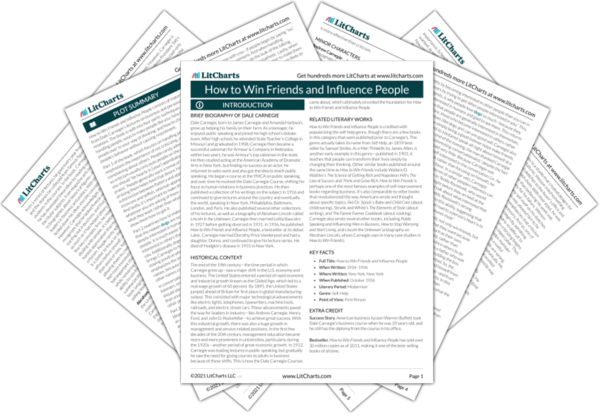AI ToolsNew
Tools to make learning and teaching easier
|
Previous
Part 4, Chapter 8
|
How to Win Friends and Influence People: Part 4, Chapter 9 Summary & Analysis |
Next
Themes
|


Upgrade to unlock the analysis and theme tracking for all of How to Win Friends and Influence PeopleHow to Win Friends and Influence People!
Get LitCharts A+